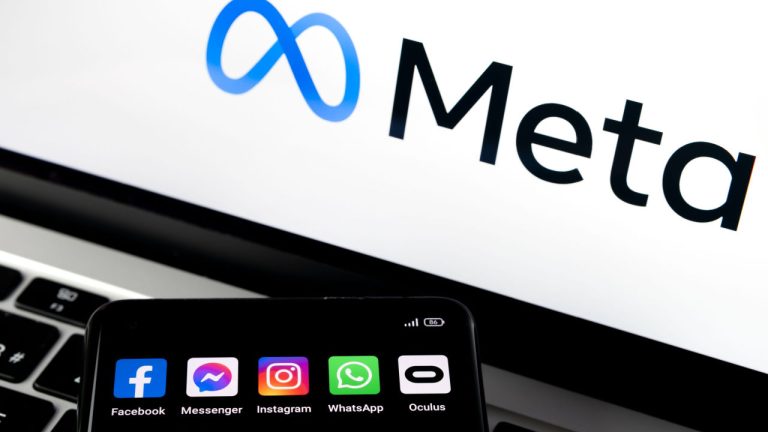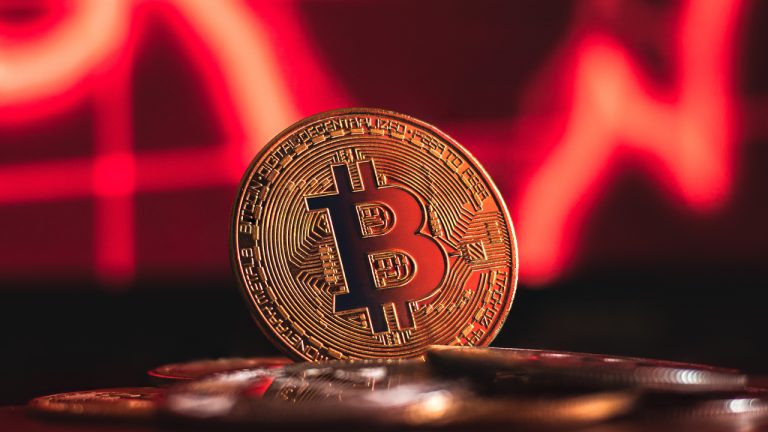 U.S. tech giant Meta is giving up on operations with non-fungible tokens (NFTs) amid ongoing turbulence in the crypto space. The company allowed creators to share digital collectibles on its leading social media platforms last year. Meta Platforms Cutting Off Support for Non-Fungible Tokens California-based technology conglomerate Meta is winding down support for digital collectibles […]
U.S. tech giant Meta is giving up on operations with non-fungible tokens (NFTs) amid ongoing turbulence in the crypto space. The company allowed creators to share digital collectibles on its leading social media platforms last year. Meta Platforms Cutting Off Support for Non-Fungible Tokens California-based technology conglomerate Meta is winding down support for digital collectibles […] On March 2, Xapo Bank announced its partnership with Lightspark, a company led by David Marcus, former crypto boss at Facebook. The partnership aims to extend the utility of bitcoin and the Lightning Network. Xapo revealed on Thursday that it is the first fully licensed private bank to offer payments through the Lightning Network. Xapo […]
On March 2, Xapo Bank announced its partnership with Lightspark, a company led by David Marcus, former crypto boss at Facebook. The partnership aims to extend the utility of bitcoin and the Lightning Network. Xapo revealed on Thursday that it is the first fully licensed private bank to offer payments through the Lightning Network. Xapo […] Meta, the company that owns Whatsapp, Instagram, and Facebook, is reportedly preparing to announce a new round of layoffs in the coming days. According to reports, the company is delaying the finalization of the budget for each one of its teams, causing operational delays and affecting the output of employees of the company. Meta to […]
Meta, the company that owns Whatsapp, Instagram, and Facebook, is reportedly preparing to announce a new round of layoffs in the coming days. According to reports, the company is delaying the finalization of the budget for each one of its teams, causing operational delays and affecting the output of employees of the company. Meta to […] Meta, the company that owns Facebook, Instagram, and Whatsapp, has shared its fourth quarter results, reporting better numbers than expected. While the company beat revenue estimates, CEO Mark Zuckerberg declared 2023 a “Year of Efficiency,” hinting at a further restructuration of the company to focus on its AI (artificial intelligence) and metaverse projects in the […]
Meta, the company that owns Facebook, Instagram, and Whatsapp, has shared its fourth quarter results, reporting better numbers than expected. While the company beat revenue estimates, CEO Mark Zuckerberg declared 2023 a “Year of Efficiency,” hinting at a further restructuration of the company to focus on its AI (artificial intelligence) and metaverse projects in the […]
Bitcoin's yearly losses are similar to high-profile stocks like Tesla and Meta with BTC investors down 70% in 2022.
Gold and stocks have underperformed in 2022, but the year has been difficult for Bitcoin (BTC) investors, in particular.
Bitcoin price looks prepared to close 2022 down nearly 70% — its worst year since the crypto crash of 2018.

BTC's depressive performance can be explained by factors such as the Federal Reserve hiking interest rates to curb rising inflationary pressures, followed by the collapse of many crypto firms, including Terra, Celsius Network, Three Arrow Capital, FTX, and others.
Some companies had exposure to defunct businesses, typically by holding their native tokens. For instance, Galaxy Digital, a crypto-focused investment firm founded by Mike Novogratz, confirmed a $555 million loss in August due to holding Terra's native asset LUNA, which has crashed 99.99% YTD.

The above catalysts have prompted Bitcoin to drop 65% year-to-date (YTD).

Meanwhile, the U.S. benchmark S&P 500 has plunged nearly 20% YTD to 3,813 points as of Dec. 28. That puts the index on its biggest calendar-year drop since the 2008 economic crisis. The bloodbath has proven to be worse for the tech-heavy Nasdaq Composite, down 35% YTD.
High-profile losers include Amazon, which has crashed approximately 50% YTD, as well as Tesla and Meta , whose stocks have dropped nearly 72.75% and 65%, respectively. As it looks, tech stocks and Bitcoin have suffered similar losses in 2022.

Just as with Bitcoin, the Fed's rate hikes remains the most-critical factor behind the U.S. stock market's underperformance. But whether a tighter monetary policy would cause an economic recession in 2023 remains to be seen.
This uncertainty has driven capital toward the U.S. dollar for safety, with the U.S. dollar index (DXY), a barometer to gauge the greenback's health versus top foreign currencies, rising nearly 8.5% YTD.

Spot gold is up 0.14% YTD to nearly $1,800 an ounce, which makes it a better performer than Bitcoin and the U.S. stock market.

Nevertheless, the year has seen gold deviating from its "safe haven" characteristics in the face of a stronger dollar and rising U.S. bond yields.
For instance, the precious metal is down 22% from its 2022 peak of $2,070, though some losses have been pared as the dollar's uptrend lost momentum in the second half of 2022.
Bitcoin had gained 1,650% after bottoming out in March 2020 below $4,000, boosted by the Fed's quantitative easing policy. Even as of Dec. 28, investors who purchased Bitcoin in March 2020 are sitting on 332% profits.

In comparison, U.S. stock market and gold's pandemic era-rally was small.
For instance, the Nasdaq Composite index grew up to 143% after bottoming out at 6,631 points in March 2020. So investors who may have gained exposure in the Nasdaq stocks during the easing era are sitting atop a maximum of 56% paper profits as of Dec. 28.

The same for gold, which rose a mere 43% during the pandemic era and is now up 26.50% when measured from its March 2020 bottom of around $1,450.

This article does not contain investment advice or recommendations. Every investment and trading move involves risk, and readers should conduct their own research when making a decision.
 Meta will continue to invest in VR (virtual reality) tech in 2023, according to statements made by Andrew Bosworth, head of Reality Labs, the metaverse division of the company. While Meta has made some changes and adapted to the current shaky economic atmosphere, Bosworth states that the company is still committed to its metaverse pivot. […]
Meta will continue to invest in VR (virtual reality) tech in 2023, according to statements made by Andrew Bosworth, head of Reality Labs, the metaverse division of the company. While Meta has made some changes and adapted to the current shaky economic atmosphere, Bosworth states that the company is still committed to its metaverse pivot. […]
If the Supreme Court decides to strike down Section 230, it's going to become considerably more difficult for centralized social media companies to operate.
The internet — arguably the greatest invention in human history — has gone awry. We can all feel it. It is harder than ever to tell if we are engaging with friends or foes (or bots), we know we are being constantly surveilled in the name of better ad conversion, and we live in constant fear of clicking something and being defrauded.
The failures of the internet largely stem from the inability of large tech monopolies — particularly Google and Facebook — to verify and protect our identities. Why don’t they?
The answer is that they have no incentive to do so. In fact, the status quo suits them, thanks to Section 230 of the Communications Decency Act, passed by the United States Congress in 1996.
Related: Nodes are going to dethrone tech giants — from Apple to Google
But things may be about to change. This term, the Supreme Court will hear Gonzalez v. Google, a case that has the potential to reshape or even eliminate Section 230. It is hard to envision a scenario where it wouldn't kill the social media platforms we use today. That would present a golden opportunity for blockchain technology to replace them.
A key facilitator of the internet’s early development, Section 230 states that web platforms are not legally liable for content posted by their users. As a result, social media networks like Facebook and Twitter are free to publish (and profit from) anything their users post.
The plaintiff in the case now before the court believes internet platforms bear responsibility for the death of his daughter, who was killed by Islamic State-affiliated attackers in a Paris restaurant in 2015. He believes algorithms developed by YouTube and its parent company Google “recommended ISIS videos to users,” thereby driving the terrorist organization’s recruitment and ultimately facilitating the Paris attack.
Section 230 gives YouTube a lot of cover. If defamatory, or in the above case, violent content is posted by a user, the platform can serve that content to many consumers before any action is taken. In the process of determining if the content violates the law or the platform’s terms, a lot of damage can be done. But Section 230 shields the platform.
Related: Crypto is breaking the Google-Amazon-Apple monopoly on user data
Imagine a YouTube after Section 230 is struck down. Does it have to put the 500 hours of content that are uploaded every minute into a review queue before any other human is allowed to watch it? That wouldn’t scale and would remove a lot of the attractive immediacy of the content on the site. Or would they just let the content get published as it is now but assume legal liability for every copyright infringement, incitement to violence or defamatory word uttered in one of its billions of videos?
Once you pull the Section 230 thread, platforms like YouTube start to unravel quickly.
The case is focused on a U.S. law, but the issues it raises are global. Other countries are also grappling with how best to regulate internet platforms, particularly social media. France recently ordered manufacturers to install easily accessible parental controls in all computers and devices and outlawed the collection of minors’ data for commercial purposes. In the United Kingdom, Instagram’s algorithm was officially found to be a contributor to the suicide of a teenage girl.
Then there are the world’s authoritarian regimes, whose governments are intensifying censorship and manipulation efforts by leveraging armies of trolls and bots to sow disinformation and mistrust. The lack of any workable form of ID verification for the vast majority of social media accounts makes this situation not just possible but inevitable.
And the beneficiaries of an economy without Section 230 may not be whom you’d expect. Many more individuals will bring suits against the major tech platforms. In a world where social media could be held legally liable for content posted on their platforms, armies of editors and content moderators would need to be assembled to review every image or word posted on their sites. Considering the volume of content that has been posted on social media in recent decades, the task seems almost impossible and would likely be a win for traditional media organizations.
Looking out a little further, Section 230’s demise would completely upend the business models that have driven the growth of social media. Platforms would suddenly be liable for an almost limitless supply of user-made content while ever-stronger privacy laws squeeze their ability to collect massive amounts of user data. It will require a total re-engineering of the social media concept.
Many misunderstand platforms like Twitter and Facebook. They think the software they use to log in to those platforms, post content, and see content from their network is the product. It is not. The moderation is the product. And if the Supreme Court overturns Section 230, that completely changes the products we think of as social media.
This is a tremendous opportunity.
In 1996, the internet consisted of a relatively small number of static websites and message boards. It was impossible to predict that its growth would one day cause people to question the very concepts of freedom and safety.
People have fundamental rights in their digital activities just as much as in their physical ones — including privacy. At the same time, the common good demands some mechanism to sort facts from misinformation, and honest people from scammers, in the public sphere. Today’s internet meets neither of these needs.
Some argue, either openly or implicitly, that a saner and healthier digital future requires hard tradeoffs between privacy and security. But if we’re ambitious and intentional in our efforts, we can achieve both.
Related: Facebook and Twitter will soon be obsolete thanks to blockchain technology
Blockchains make it possible to protect and prove our identities simultaneously. Zero-knowledge technology means we can verify information — age, for instance, or professional qualification—without revealing any corollary data. Soulbound Tokens (SBTs), Decentralized Identifiers (DIDs) and some forms of nonfungible tokens (NFTs) will soon enable a person to port a single, cryptographically provable identity across any digital platform, current or future.
This is good for us all, whether in our work, personal, or family lives. Schools and social media will be safer places, adult content can be reliably age-restricted, and deliberate misinformation will be easier to trace.
The end of Section 230 would be an earthquake. But if we adopt a constructive approach, it can also be a golden chance to improve the internet we know and love. With our identities established and cryptographically proven on-chain, we can better prove who we are, where we stand, and whom we can trust.
This article is for general information purposes and is not intended to be and should not be taken as legal or investment advice. The views, thoughts, and opinions expressed here are the author’s alone and do not necessarily reflect or represent the views and opinions of Cointelegraph.
 In Nov. 2021, bitcoin’s market valuation managed to make it into the top ten list of assets ranked by market capitalization, as it was the eighth largest market cap last year on Nov. 9. Since then, bitcoin is 75% lower in value against the U.S. dollar and the leading crypto asset’s market capitalization has dropped […]
In Nov. 2021, bitcoin’s market valuation managed to make it into the top ten list of assets ranked by market capitalization, as it was the eighth largest market cap last year on Nov. 9. Since then, bitcoin is 75% lower in value against the U.S. dollar and the leading crypto asset’s market capitalization has dropped […]
Despite Facebook’s new name, focus and billions in investment, the metaverse will emerge drastically different from its vision.
In changing the name of its parent company to Meta, Facebook put a stake in the ground: It would be the symbol of the evolution of the internet, the metaverse. Whether we liked it or not.
According to Meta, the metaverse is “a set of digital spaces to socialize, learn, play and more.” Its first true attempt came in the form of Horizon Worlds, a virtual reality universe so lifeless and devoid of content that it has people asking if the metaverse is a step forward or backward.
Thankfully, it won’t matter.
The metaverse, a term from long before Facebook existed, is happening. Its potential and draw are found in existing places — games like Fortnite, platforms like Roblox and online hubs like Discord. There will be no launch of the metaverse, no switch that turns it on. You’ve been experiencing parts of it whether you’ve realized it or not. More and more of your real-world identity has blended into your digital one. IRL to URL, and back again.
Pointedly, the metaverse isn’t what Meta says it is.
“A set of digital spaces to socialize, learn, play and more” accurately describes current apps and games, but this simplified definition has made the term “metaverse” synonymous with stilted software like Horizon Worlds, a painfully unimaginative 3D world with early 2000s-era graphics and plenty of space for ads.

For those not deep into the weeds of writer Matthew Ball’s precise definition, the metaverse can be thought of as a change in how we view and experience our digital lives — not a 3D world, but a shift into a more immersive, simultaneous, representative relationship between our physical and digital selves. The metaverse causes the line between the real and digital to blur, an evolution of the change triggered by the mobile internet.
So naturally, the metaverse won’t flourish because of Meta’s isolated, soulless dystopia. Nor will it do so in Decentraland’s attempt at creating a digital world, which fails to draw more attention than a mildly popular indie game after two years and billions of dollars in funding.
Related: Facebook is on a quest to destroy the metaverse and Web3
It’s no surprise: Horizon Worlds and Decentraland are competing with digital escapes that are exponentially more fun — games, movies and social networks.
And even more directly, they’re competing with the real world. If you’re telling people they’re going to work and play in the metaverse, it better offer something magical beyond their normal lives. Right now, the meatspace still wins. It’s not even close.
That magical feeling has always been present in games. Visiting your feline neighbor in Animal Crossing is infinitely more compelling than seeing your legless coworker at a conference table in Horizon Worlds. Making immersive experiences compelling requires that magic, and it’s hard to create a company culture that can build fun, perhaps impossible when your revenue is from driving more clicks — or whatever call to action exists in 3D.
3D platforms like Roblox and VRChat have instead built a path for creators to bring their own magic, albeit a narrow one. Spending time on VRChat vs. Horizon Worlds showcases the difference between a user-generated world and a corporate one. The former is human and surprising, while the latter is depressing and expected.
But creators must be motivated to create in a specific medium — and given the tools to do so. The old path to motivating creators with sponsorship is toxic and dying. Creative people don’t want to restrict their visions for corporate profits or limit their options by platform restrictions.
Fortunately, there is another way.
Nonfungible tokens (NFTs) have largely been viewed as giving power back to the consumer, acting as a way for real ownership to be held by the collector, not the platform. And that’s all true.
But ownership has a different effect on creators: It motivates them. Rather than creating content for other platforms or ads for brands, their work is instantly and indefinitely monetizable. And in the rare but best-case scenarios, it’s handled in a truly decentralized way away from deception.
Decentralization and ownership provide that critical motivating factor for creators — the people who should be defining what the metaverse looks like. Tokenization sets creators free from the serfdom of today’s rent-seeking social networks (think of Instagram or Snapchat), allowing them to create and sell their work without needing to be sponsored by a brand to feed themselves. Protocols built for decentralization will be where creators naturally gravitate, creating avant-garde spaces and defining what creativity in the metaverse means. Gentrification can come later.
Related: Facebook and Twitter will soon be obsolete thanks to blockchain technology
Instead of giving power and freedom to creators, Meta is structured to think of ad revenue and brand partners first, a strategy that is actively hostile to creators and users at large.
A direct relationship between creators and their communities (an increasingly fuzzy distinction) creates a new trust, and the foundation for that relationship is what will usher in an awe-inspiring metaverse. The “gray space” where creators and communities meet — an idea embraced by David Bowie — drives an entirely different dynamic and experience than one where the core relationship of a platform is built on the relationship between the platform owner and its advertisers.

Truthfully, creating that magic in the metaverse is challenging, even with digital ownership and the right motivation. Even the best 3D worlds and digital meeting places fail to connect meaningfully back to our real lives. NFTs have yet to impact the physical world beyond their financial impact. We haven’t brought URL back to IRL.
But the signs are there.
Related: Nodes are going to dethrone tech giants — from Apple to Google
Mixed reality games like Pokémon Go, which bring iconic digital characters into augmented reality, show a centralized approach to an immersive digital world built on the physical one. Tying our inherent connection to our digital collectibles, like Psyduck, back into our real lives is where the metaverse can reach new relevance.
Alone, the context-driven version of the metaverse is at risk of centralization and attention-economy economics, too — and must be paired with decentralization and a creator ethos. Empowering creators to define reality itself will bring about a future that enhances our lives instead of taking away from them.
The metaverse is happening, and it won’t look like Meta’s version.
The metaverse is not a specific technology but an era where we have a changed perception of technology’s role in our lives. One where digital realities represent a larger piece of our shared reality and where purely using technology is replaced by creating, owning and experiencing it. The more tactile and connected to us that those digital realities become, the more real the metaverse is.
Protocols, not platforms. Creators, not brands. Context, not isolation. Principles and people will define this next evolution of the internet, and Meta is not the arbiter of either.
This article is for general information purposes and is not intended to be and should not be taken as legal or investment advice. The views, thoughts and opinions expressed here are the author’s alone and do not necessarily reflect or represent the views and opinions of Cointelegraph.

Blockchain and Web3 companies are attempting to prevent leaks like these in the future by creating alternative login processes and distributing necessary data collection in a highly decentralized way.
The Irish Data Protection Commission (DPC) announced on Nov. 28 that it has fined Facebook developer Meta €265m for breach of the European Union’s General Data Protection Regulation (GDPR). Specifically, the commission stated that it had fined Meta for failing to design Facebook in such a way that it would protect users from data breaches.
The announcement followed a more than year-long investigation that began in April, 2021. The breach itself occurred even earlier, in late 2019.
Data Protection Commission announces decision in Facebook “Data Scraping” Inquiry: https://t.co/xW9nVqiJ2Y pic.twitter.com/6iDYnyVk5R
— Data Protection Commission Ireland (@DPCIreland) November 28, 2022
The data breach was first discovered when a Tech Crunch report revealed that hundreds of millions of Facebook users’ phone numbers were listed in a publicly-accessible database online. Although the database was later taken down by the web-host, its existence revealed that Facebook’s data had been breached.
In April, 2021, the DPC began investigating the breach. At the time, Meta posted a statement about the breach called “The Facts on News Reports About Facebook Data.” Meta claimed that an attacker had used its contact importer tool to spam the server with phone numbers to see which ones had Facebook accounts associated with them.
Each time the attacker got a response, they were able to gain the personal details of the user and match these details up with the users’ phone number. As a result, users’ personal data had been leaked to malicious actors.
In the statement, Meta claimed that it had patched this contact importer vulnerability once the breach was discovered and that the tool was now safe.
According to the new DPC statement, it found “infringement of Articles 25(1) and 25(2) GDPR” due to this incident and “has imposed administrative fines totalling €265 million.”
The use of personal data in social media apps has become controversial in recent years as data breaches have become commonplace.
Several blockchain companies have attempted to solve the problem by creating blockchain social media apps that do not require users to give out their email addresses or phone numbers. For example, both Bitclout and Blockster are social media apps that allow users to sign in with just an Ethereum wallet.
Ethereum Developers have also offered a proposal, called “EIP-4361,” to standardize the wallet login process across all apps. Supporters believe this could eliminate the need to ask users for sensitive personal information in social media apps, which could help to prevent breaches like this in the future.